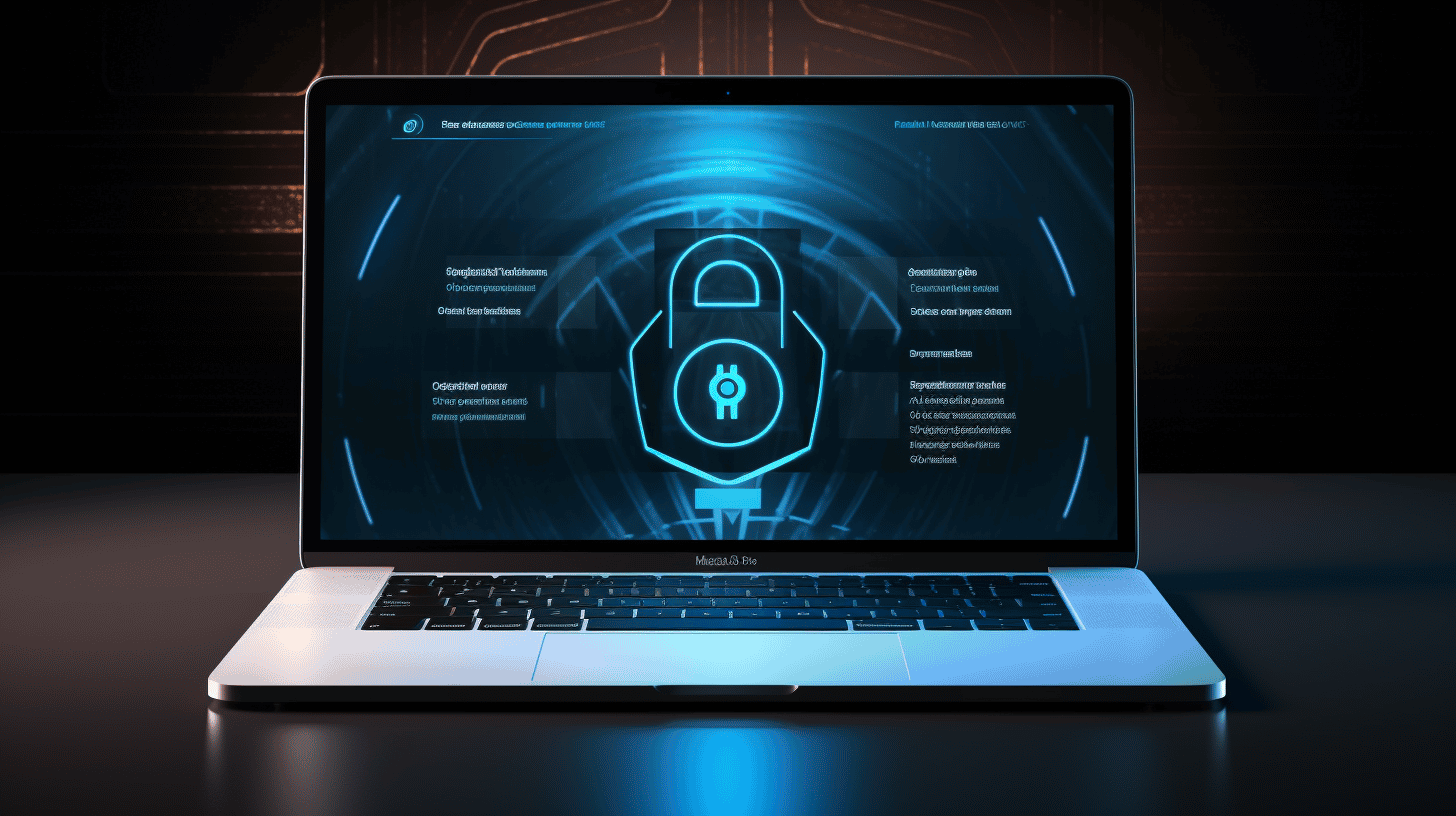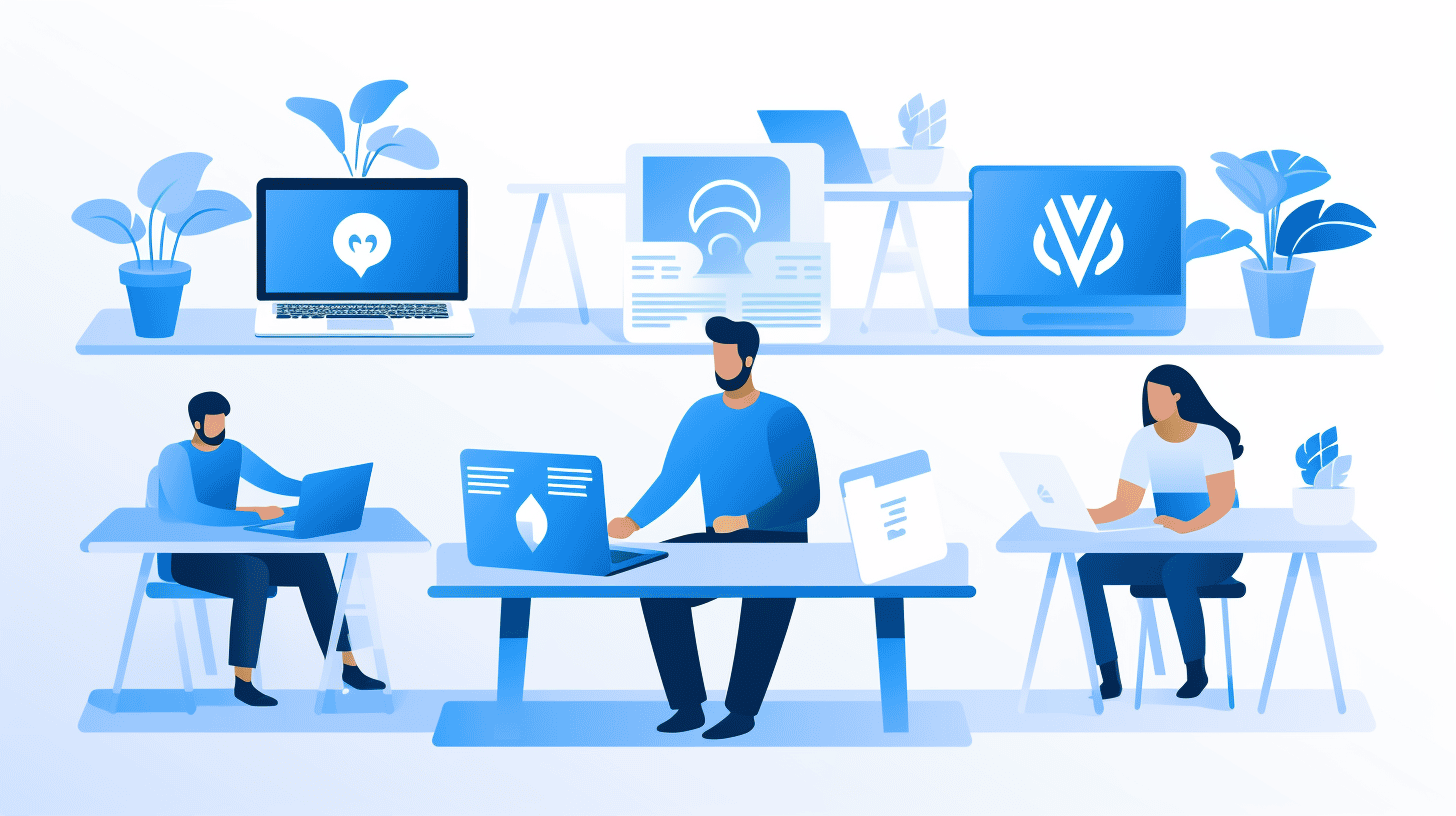在当今的数字环境中,拥有一个安全且用户友好的网站对于各种规模的企业都至关重要。对于小企业主来说,这一点尤其重要。随着网络威胁的增加和在线交易的增加,采取措施保护您的网站并为访问者提供无缝的用户体验至关重要。
🔐💻
无论您经营的是电子商务商店、博客还是基于服务的网站,WordPress 网站都可以成为帮助您建立在线形象的强大工具。WordPress 是一种流行的内容管理系统,以其灵活性、可扩展性和用户友好界面而闻名。然而,与任何在线平台一样,它也不能免受网络风险和潜在漏洞的影响。
为了确保 WordPress 网站的安全并保护您的宝贵数据,实施有效的网络安全措施至关重要。此外,为访问者创造用户友好的体验可以提高参与度、增加转化率,并最终促进业务增长。
在本文中,我们将探讨网络安全对小企业主的重要性,并深入探讨保护和优化 WordPress 网站的实用技巧。我们将涵盖从定期更新和强密码到安全插件和移动优化的好处等主题。最后,您将对如何创建安全且用户友好的 WordPress 网站有一个深入的理解,从而为您的小企业取得成功奠定基础。让我们开始吧!🚀
网络安全的重要性
在当今的数字世界中,网络安全比以往任何时候都更加重要。随着网络攻击数量的增加以及它们可能对个人和企业造成的潜在财务影响,优先考虑网络安全措施至关重要。在本节中,我们将探讨一些有关全球网络攻击的惊人统计数据、这些攻击的财务影响以及中小企业 (SME) 面临的具体危险。
全球网络攻击统计
- 您是否知道网站平均每天遭受 94 次攻击?这个惊人的数字凸显了组织和个人在网络空间面临的持续威胁1.
- 平均而言,数据泄露造成的损失高达 $445 万美元2这包括调查、补救、法律后果等各种费用,更不用说对公司声誉的损害。
- 每天平均有 30,000 个网站遭到黑客攻击3这一令人震惊的数字凸显了采取强有力的网络安全措施来保护敏感数据和防止未经授权的访问的必要性。
网络攻击的财务影响
- 网络攻击的财务影响十分巨大。事实上,一次数据泄露就足以让一家小企业破产4因此,投资适当的安全措施至关重要。
- 根据最近的统计数据,网络攻击每年给全球企业造成超过 $1 万亿美元的损失2。这个惊人的数字强调了保护组织免遭潜在财务损失的重要性。
中小企业面临的危险
- 中小企业 (SME) 特别容易受到网络攻击。2021 年,令人震惊的 61% 中小企业成为网络犯罪分子的目标4. 黑客通常认为中小企业是更容易攻击的目标,因为它们的网络安全资源可能有限。
- 令人震惊的是,所有网络攻击中有 46% 影响的是员工人数少于 1,000 人的企业5。这一统计数据凸显了中小企业迫切需要优先考虑网络安全并实施强有力的安全措施。
总之,在我们这个技术驱动的世界里,网络安全的重要性怎么强调都不为过。从持续的网络攻击威胁到潜在的毁灭性财务影响,组织和个人必须采取主动措施保护他们的敏感数据并确保他们的在线存在。通过实施网站安全最佳实践4,随时了解最新威胁,并投资于尖端的网络安全解决方案,我们可以领先网络犯罪分子一步,保护我们的数字生活。
保护你的 WordPress 网站
🔒 定期更新的重要性
说到保护您的 WordPress 网站,定期更新至关重要。WordPress 是一个流行的平台,为全球数百万个网站提供支持,因此成为黑客和恶意机器人的主要目标。
这就是为什么定期更新对于维护 WordPress 网站的安全性至关重要:
- 安全补丁:更新通常包括解决漏洞并保护您的网站免受潜在攻击的安全补丁。通过保持 WordPress 核心、主题和插件的更新,您可以确保及时解决任何已知的安全问题。
- 错误修复和性能增强:更新不仅可以提高安全性,还可以修复错误并提高性能。通过定期更新您的 WordPress 网站,您可以确保它运行顺畅,为访问者提供无缝体验。
- 兼容性:更新还可确保与最新版本的 WordPress 和其他插件兼容。未能更新可能会导致网站不同组件之间出现兼容性问题,从而可能导致安全漏洞。
请记住,更新 WordPress 网站不是一次性任务。开发人员不断改进他们的软件,不时发布更新。确保定期检查更新并及时应用,以确保您的网站安全。
🔑 使用强密码
增强 WordPress 网站安全性的最简单但最有效的方法之一是使用强密码。弱密码或常用密码会为黑客提供入侵您网站的便利。请按照以下步骤创建强密码:
- 长度:密码长度至少应为八个字符或以上。密码越长,破解难度就越大。
- 复杂:使用大写和小写字母、数字和符号的组合。避免使用字典中的单词或可预测的模式。
- 避免重复使用密码:切勿在多个帐户中使用相同的密码。如果您的一个帐户被盗用,您的所有其他帐户都会面临风险。
💡 安全插件的好处
除了定期更新和强密码外,WordPress 网站的另一层保护是安全插件。这些插件增加了额外的安全级别,并有助于保护您的网站免受各种威胁。以下是使用安全插件的一些好处:
- 恶意软件检测:安全插件可以扫描您的网站是否存在恶意软件、恶意代码和可疑活动,并提醒您注意潜在的安全漏洞。
- 防火墙保护:安全插件通常带有内置防火墙,可以阻止可疑 IP 地址并防止未经授权访问您的网站。
- 登录保护:许多安全插件提供登录锁定、双因素身份验证和 CAPTCHA 等功能,以保护您的网站免受暴力攻击和密码猜测尝试。
请记住,安全插件不能替代定期更新和强密码。它们应该与其他安全措施结合使用,为您的 WordPress 网站提供全面保护。
有关 WordPress 安全性和最佳实践的更多见解,请查看 WordPress 安全洞察 页面。保持主动性并确保您的 WordPress 网站安全!
创建用户友好的 WordPress 网站
在当今的数字时代,对于企业和个人来说,拥有一个用户友好的网站至关重要,它可以吸引访问者并让他们再次光顾。在构建用户友好的 WordPress 网站时,需要考虑几个因素。从移动优化到便捷的搜索功能和图像优化,这些元素在增强用户体验和使您的网站成为目标受众的首选目的地方面发挥着重要作用。
移动优化
由于大约 55% 的网络流量来自移动设备,因此确保您的 WordPress 网站响应迅速且适合移动设备至关重要。移动优化不仅可以改善整体用户体验,还有助于提高搜索引擎排名。以下是针对移动设备优化 WordPress 网站的一些技巧:
- 使用响应式主题:选择可无缝适应不同屏幕尺寸的主题,在所有设备上提供最佳浏览体验。
- 优化图片:压缩图片以减小文件大小,同时不影响质量。这将有助于提高页面加载速度,尤其是在网络连接较慢的移动设备上。
- 最小化插件:限制网站上的插件数量,以减少对页面加载速度的影响,尤其是在资源有限的移动设备上。
- 简化导航:设计一个简单直观的菜单,以便在小屏幕上轻松导航。
通过实施这些移动优化策略,您可以确保您的 WordPress 网站可供旅途中的用户访问,从而提高参与度和转化率。
便捷的搜索功能
在 WordPress 网站上添加搜索栏可以让访问者快速找到他们想要的内容,从而显著提升用户体验。以下是整合便捷搜索功能至关重要的原因:
- 改进的导航:访问者可以直接搜索特定主题、产品或服务,而无需浏览多个页面。
- 节省时间:搜索栏使用户免于滚动长页面或在导航菜单中来回切换的麻烦,从而带来更高效的浏览体验。
- 提高参与度:当用户可以轻松找到所需信息时,他们更有可能留在您的网站,从而增加将他们转化为潜在客户或客户的机会。
确保搜索栏位于 WordPress 网站所有页面上的显眼位置,并且易于查看。此外,请考虑添加自动完成建议或过滤器等高级功能,以进一步增强搜索功能的便利性。
图像优化
视觉内容在吸引和留住访客注意力方面起着至关重要的作用。但是,大型图像文件会严重影响 WordPress 网站的加载速度,从而导致用户体验不佳。以下是一些优化图像以获得更好性能的技巧:
- 压缩图像:使用图像压缩工具或 WordPress 插件,在不影响质量的情况下减小图像文件大小。
- 使用适当的图像格式:根据内容选择正确的图像格式。JPEG 最适合照片,而 PNG 则适合具有透明度的图像。
- 延迟加载:实现延迟加载,仅当图像对用户可见时才加载图像,从而提高网站的整体加载速度。
- 优化 alt 标签:为您的图片添加描述性 alt 标签,以提高可访问性并向搜索引擎提供有价值的信息。
通过优化图像,您可以提高网站的加载速度并为访问者提供无缝的浏览体验。
总之,创建一个用户友好的 WordPress 网站涉及针对移动设备进行优化、提供便捷的搜索功能以及优化图像。通过关注这些关键领域,您可以确保您的网站吸引访问者并提供卓越的用户体验。那么,为什么要等呢?立即采取必要的步骤来优化您的 WordPress 网站,并获得增加参与度和转化率的好处。
阅读有关优化 WordPress 加载速度的更多信息 在这里,.
选择可靠的 WP 托管服务提供商
在托管 WordPress 网站时,可靠性至关重要。毕竟,您希望您的网站始终可访问、性能良好且安全。但是有这么多托管服务提供商可供选择,您如何确保做出正确的选择?
以下是选择可靠的 WordPress 托管服务提供商时需要考虑的一些基本因素:
1. 性能和正常运行时间保证
在选择托管服务提供商时,最重要的方面之一是他们的性能记录和正常运行时间保证。加载缓慢的网站会阻碍访问者并损害您的搜索引擎排名。寻找提供惊人速度和高正常运行时间保证的托管服务提供商,最好是 99.9% 或更高。这意味着您的网站将几乎一直正常运行,为您的访问者提供服务。
2. 安全措施
选择托管服务提供商时,安全性始终是首要考虑因素。可靠的 WordPress 托管服务提供商将采取强大的安全措施来保护您的网站免受黑客、恶意软件和其他网络威胁的侵害。寻找恶意软件扫描和删除、SSL 证书和定期备份等功能,以确保您的数据安全和访问者的隐私。
3.可扩展性和资源
随着网站的发展,您需要更多资源来容纳增加的流量并处理更高的需求。确保您的托管服务提供商提供可扩展性和足够的资源来支持网站的发展。这包括升级托管计划或无缝迁移到更强大的服务器的选项。
4. 客户支持
当您遇到技术困难或对托管有疑问时,拥有可靠且响应迅速的客户支持将大有裨益。寻找通过多种渠道(例如实时聊天、电子邮件和电话)提供全天候客户支持的托管服务提供商。此外,检查他们是否有记录良好的知识库或社区论坛,您可以在其中找到常见问题的答案。
5. 定价和性价比
虽然价格不应该是唯一的决定因素,但在选择 WordPress 托管服务提供商时,考虑预算是必不可少的。寻找提供透明定价且没有隐藏费用或过度追加销售的提供商。考虑您将在功能、支持和性能方面获得的价值,并选择适合您需求且不会花光积蓄的计划。
请记住,选择可靠的 WordPress 托管服务提供商对于您网站的成功至关重要。花点时间研究和比较不同的选项,阅读评论,并评估每个提供商提供的功能和优势。
要了解有关托管 WordPress 主机的好处以及它如何增强网站的可靠性和安全性的更多信息,请查看 选择托管 WordPress 主机.
主题、插件和核心定期更新的相关性
想象一下这样的场景:您正在浏览一家在线商店,然后您遇到了一个设计精美的网站,它具有您需要的所有功能。一切似乎都很完美,直到您点击一个产品并遇到错误消息。令人沮丧,对吧?当主题、插件或 WordPress 核心没有定期更新时,就会出现这种情况。
定期更新主题、插件和 WordPress 核心对于网站的平稳运行和安全至关重要。原因如下:
增强安全性
随着 WordPress 的普及,潜在漏洞被发现的风险也在增加。开发人员不知疲倦地努力识别和修复这些漏洞,发布更新以确保您的网站保持安全。通过定期更新主题、插件和 WordPress 核心,您可以保护您的网站免受潜在的安全漏洞的侵害。
提高性能
更新通常包含错误修复、性能增强和新功能。通过跟上这些更新,您可以确保您的网站以最佳性能运行并提供无缝的用户体验。此外,过时的主题和插件会降低您网站的加载速度,从而对用户满意度和搜索引擎排名产生负面影响。
与最新技术的兼容性
网络不断发展,新技术和编码标准层出不穷。通过更新主题、插件和 WordPress 核心,您可以确保与最新的网络技术兼容。这不仅可以让您的网站保持最新状态,还可以让您利用新功能和改进。
保持竞争优势
视觉上吸引人且功能良好的网站可以显著影响您的品牌形象和用户参与度。定期更新可展示现代设计、利用新功能并提供卓越的用户体验,帮助您在竞争中保持领先地位。保持相关性,保持吸引力!
为了确保有效的 WordPress 网站管理,必须优先定期更新主题、插件和 WordPress 核心。通过这样做,您可以增强网站的安全性、性能和功能,保持领先于竞争对手并取悦用户。
记住:更新的网站才是快乐的网站!🌟
结论
总之,对于想要保护其在线形象并为访问者提供积极体验的小型企业主来说,创建一个安全且用户友好的 WordPress 网站至关重要。通过了解网络安全的重要性并实施定期更新、强密码和安全插件等措施,企业可以保护其网站免受潜在威胁。
此外,优化网站以适应移动设备、实现便捷的搜索功能以及优化图片可以增强用户体验,使网站对访问者更具吸引力。这些步骤可以提高参与度、提高转化率,并最终促进业务增长。
选择可靠的 WordPress 托管服务提供商对于确保网站的安全性和性能也至关重要。Managed-WP 是一个值得信赖且信誉良好的托管 WordPress 云托管平台,可简化基础设施并提供 24/7/365 的专家支持。借助 Managed-WP,小企业主可以放心,因为他们知道他们的网站托管在安全可靠的平台上。
通过积极更新主题、插件和 WordPress 核心,小型企业主可以预防漏洞并确保其网站顺利运行。定期更新对于维护网站的安全性、兼容性和性能至关重要。
在网络威胁不断增加的快节奏数字环境中,小企业主必须优先考虑其 WordPress 网站的安全性和可用性。通过遵循本文概述的提示并与 Managed-WP 等值得信赖的托管服务提供商合作,企业可以创建安全且用户友好的在线形象,以吸引和留住客户。
请记住,保护您的网站并提供积极的用户体验是一项投资,可以为您的业务带来长期利益。采取必要措施保护您的网站,并在将来获得回报。
访问 Managed-WP 探索其优质管理的 WordPress 云托管平台并体验简化基础设施和专家支持带来的自由。
常见问题
- 为小企业主创建安全的 WordPress 网站有哪些技巧?
为小企业主创建安全的 WordPress 网站的一些技巧包括:保持 WordPress 核心、主题和插件更新、使用强大而独特的密码、限制登录尝试次数、安装安全插件、使用可靠的托管服务提供商以及定期备份您的网站。
- 如何让我的 WordPress 网站更加人性化?
为了使您的 WordPress 网站更加用户友好,您可以:选择响应迅速且适合移动设备的主题、优化网站速度、创建清晰的导航菜单、使用直观且易于理解的布局、添加搜索功能以及为您的目标受众提供有用且相关的内容。
- 拥有一个安全的 WordPress 网站有哪些好处?
拥有安全的 WordPress 网站有助于保护您的业务和客户数据免受网络威胁,防止黑客攻击和未经授权的访问,提高搜索引擎排名,与您的受众建立信任,并提供积极的用户体验。
- 推荐使用哪些安全插件用于 WordPress 网站?
一些推荐用于 WordPress 网站的流行安全插件包括:Wordfence、Sucuri Security、iThemes Security、All In One WP Security & Firewall 和 BulletProof Security。每个插件都提供不同的功能和保护级别,因此请选择适合您特定安全需求的插件。
- 是否有可用的插件来增强 WordPress 网站的用户友好性?
是的,WordPress 网站有多种用户友好的插件可供选择。一些流行的选项包括:用于创建联系表单的 WPForms、用于网站分析的 MonsterInsights、用于设计自定义页面布局的 Elementor、用于优化内容的 Yoast SEO 和用于提高网站速度的 W3 Total Cache。



















